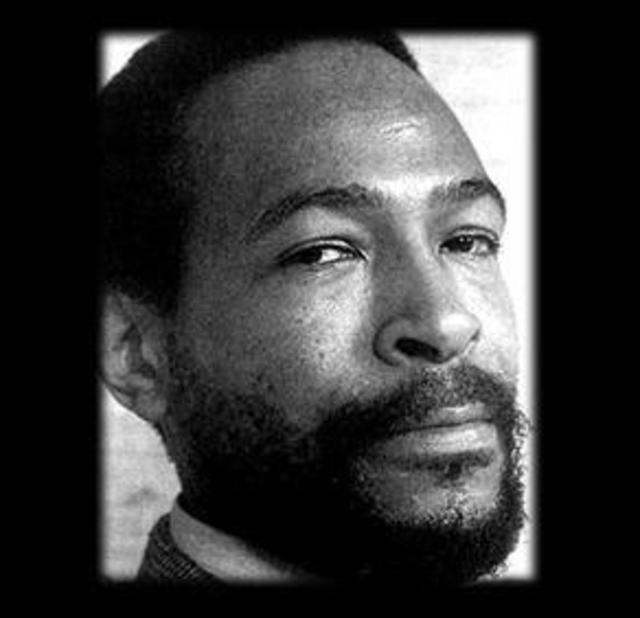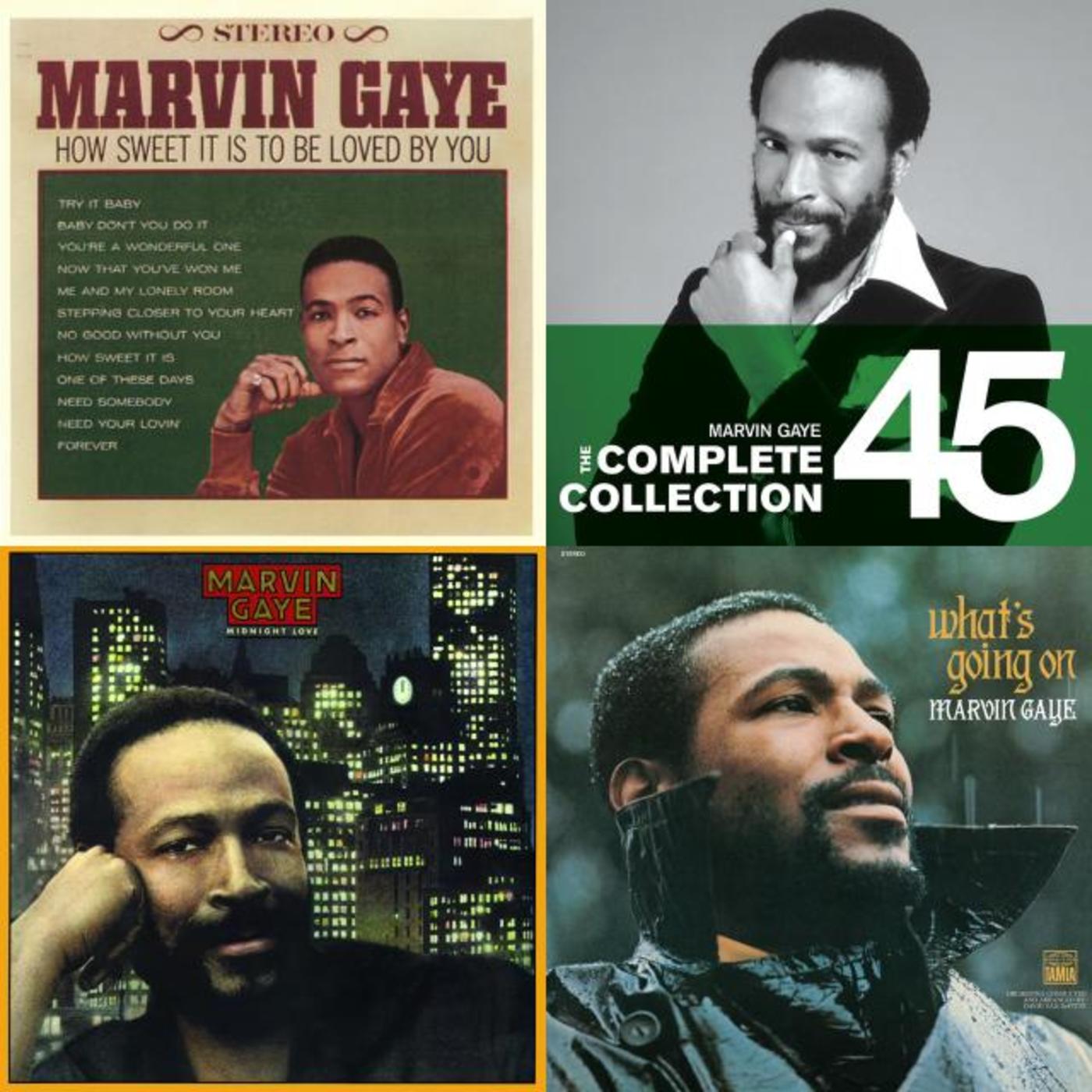Marvin Gaye

Marvin Gaye made a huge contribution to soul music in general and the Motown sound in particular. As one of Motown's renaissance men, Gaye could do it all. He wrote, produced and played a variety of instruments. Most of all, Gaye possessed a classic R&B voice that was edged with grit yet tempered with sweetness. A musical visionary, he conceived of albums as something more than individual songs, whether it be his early collections of show tunes and standards or later thematic masterworks about the state of the world (What's Going On?), sexual politics (Let's Get It On) and marriage (Here, My Dear).In the early days of Motown, Gaye played drums and piano on tour and in the studio for the likes of the Miracles and the Marvelettes. He wrote or co-wrote songs for himself and others, including "Dancing in the Street," a Sixties soul classic made famous by Martha and Vandellas. Gaye recorded in a variety of styles, from adult ballads to gritty uptempo soul to topical concept albums. At every stage in his career, Gaye projected an air soulful authority driven by fervid conviction and heartbroken vulnerability. He was a long-suffering soul who sought relief in music. As biographer David Ritz noted, "His music was cathartic. His songs were prayers, meditations, strategies for survival."He was born Marvin Pentz Gay (he would later add the "e" to his surname) on April 2, 1939, in Washington D.C. His father, Rev. Marvin Gay Sr., led a small, charismatic sect that combined elements of Orthodox Judaism and fundamentalist Christianity. His mother worked as a domestic and raised Marvin and his four siblings. Gaye sought to escape from his father's stern hand and the harsh realities of ghetto life through music. His musical tastes were shaped by such R&B artists as Rudy West (of the Five Keys), Clyde McPhatter (of the Drifters), Ray Charles and Little Willie John. He cited "God Only Knows," by the Capris, as critical to his musical awakening.In 1958 Gaye's first vocal group, the Marquees, were tapped by Harvey Fuqua to replace the departed members of his own, the Moonglows. Through Fuqua's acquaintance with Berry Gordy, Gaye wound up at Motown. Both Gaye and Fuqua married sisters of Gordy's (Anna and Gwen, respectively). For Gaye, life at Motown became a family affair in every way, and his affiliation with the label would last for two decades.Although he initially envisioned himself a supper-club singer and dreamed of becoming "the black Frank Sinatra," Gaye succeeded at Motown as a soul man who aimed his talent at a younger audience. Gaye's first success under his name came in 1962 with "Stubborn Kind of Fellow."From that point on, Gaye placed 56 records on the pop singles charts, both as a solo act and with female duettists, including Wells, Kim Weston, Tammi Terrell and Diana Ross. He connected with uptempo dance tunes ("Hitch Hike," "Can I Get a Witness," "I'll Be Doggone") and more romantic fare that spotlighted his midrange tenor ("How Sweet It Is to Be Loved by You," "Too Busy Thinking About My Baby"). Gaye scored his greatest triumph with an edgy, sinuous version of "I Heard It Through the Grapevine," produced and co-written by Motown staffer Norman Whitfield. Gaye's version shot topped the charts for seven weeks, sold four million copies and became Motown's biggest-selling single of the Sixties. For all this, Gaye earned the nickname "the Prince of Motown."From 1967 to 1969, Marvin Gaye and Tammi Terrell reigned as R&B's hottest duo, cutting hits with the songwriting and production team of Nick Ashford and Valerie Simpson. Their streak included "Ain't No Mountain High Enough" and "If I Could Build My Whole World Around You." Tragically, Terrell collapsed in Gaye's arms during a 1967 performance in Virginia. Three years and eight operations later, she died of a brain tumor, and Gaye remarked, "I felt that I had somehow died with her." Gaye, who considered himself more of a recording than a performing artist in any case, didn't take to the stage again for five years after her death.Subsequently, he reinvented and asserted himself to the point where he and Stevie Wonder became Motown's first truly autonomous artists. Gaye's artistry reached its peak with 1971's What's Going On, an ambitious, nearly operatic concept album that mused deeply on such issues as Vietnam, drugs, inequality, the economy and the environment over a free-flowing musical backdrop that drew on jazz, pop and classical forms. Gaye referred to the album as a "gift from God," and the album's spiritual dimension found overt expression in his liner notes: "We've got to find the Lord. Allow him to influence us. I mean, what other weapons have we to fight the forces of hatred and evil?"In 1994, Britain's Q magazine noted that What's Going On "did for soul what Blonde on Blonde and Sgt. Pepper had done for rock." In 2000, fellow Motown icon Smokey Robinson commented, "What's Going On is my favorite album of all time. More than that, it is the greatest album of all time." Besides establishing a new credibility for Motown in a more album-oriented age, What's Going On yielded three influential and politically potent hit singles: "Inner City Blues," "Mercy Mercy Me (The Ecology)" and the title track. After this groundbreaking work, Gaye produced other masterpieces, including the unabashedly erotic Let's Get It On and an idiosyncratic deconstruction of his failed marriage to Anna Gordy, Here, My Dear.After 20 years at Motown, Gaye left the label for Columbia, where he staged a major comeback with Midnight Love (1982) and "Sexual Healing" (Number One R&B, Number Three pop). Like much of Gaye's later work, it sought to unify the sensual and spiritual. Despite his rekindled popularity, both on the charts and as a live performer, Gaye remained troubled by drug problems and suicidal bouts of depression. He moved into his parents' home, where he frequently quarreled with his father, much as he had throughout his troubled teenage years.On April 1, 1984 – a Sunday morning, and the day before his 45th birthday – Marvin Gaye was shot to death at point-blank range by his father after a violent argument. Following a star-studded funeral, his ashes were scattered in the Pacific Ocean.

